Introduction
In today’s fast-paced and digitally connected world, access to information has always been challenging. With just a few clicks, we can explore a wealth of knowledge, connect with others globally, and engage in many online activities. However, this digital landscape also presents challenges, particularly in discerning reliable information from misinformation and navigating the overwhelming volume of content available. This is where digital literacy becomes vital. Digital literacy encompasses the skills and competencies needed to effectively use, evaluate, and engage with digital tools and information. By building digital literacy skills, we equip ourselves and future generations with the tools to thrive in an increasingly digital world.
The Significance of Digital Literacy
In today’s digital age, digital literacy holds immense significance in empowering individuals to navigate the digital landscape effectively. The ability to use, assess, and access digital information and technologies is known as digital literacy.
- Education: Digital literacy enables students to engage with digital resources, research, and critically evaluate information. It promotes independent learning, information fluency, and digital citizenship skills necessary for academic success.
- Employment: In the modern workforce, digital literacy is a prerequisite. Proficiency in using digital tools, software, and online platforms is essential for accessing job opportunities, collaborating remotely, and adapting to rapidly evolving technological advancements.
- Citizenship: Digital literacy empowers individuals to participate actively in the digital realm, engage in informed decision-making, and navigate digital platforms responsibly. It includes understanding online privacy, combating misinformation, and fostering digital ethics.
- Lifelong Learning: Digital literacy is a lifelong skill. It enables individuals to stay updated with new technologies, access online learning platforms, and pursue continuous personal and professional development.
In conclusion, digital literacy is essential in today’s digital era. It equips individuals with the skills to navigate the digital world, critically evaluate information, and participate responsibly as digital citizens. By promoting digital literacy, we empower individuals to leverage the vast opportunities offered by digital technologies while mitigating the risks associated with information overload and digital inequity.
Key Skills for Digital Literacy
Digital literacy encompasses a range of essential skills that enable individuals to effectively navigate the digital landscape and engage with digital tools and information. These skills empower individuals to make informed decisions, critically evaluate digital content, and communicate and collaborate online.
- Information Retrieval: The ability to search for and locate relevant information online using appropriate search strategies, keywords, and filters. This skill involves assessing the credibility and reliability of sources.
- Media Literacy: The capacity to analyze and evaluate different forms of media, including images, videos, and social media posts. Media literacy involves understanding biases, recognizing manipulation techniques, and interpreting messages accurately.
- Critical Evaluation: The skill to critically evaluate digital information’s credibility, accuracy, and relevance. This includes assessing the authority and expertise of authors, considering biases, and examining supporting evidence.
- Digital Communication: Proficiency in using digital communication tools, such as email, messaging apps, and video conferencing platforms. This skill involves effective online etiquette, clear and concise writing, and respectful online interactions.
- Online Safety and Privacy: The knowledge and practices to protect personal information, navigate online threats, and engage in responsible digital behavior. This includes understanding privacy settings, recognizing phishing attempts, and avoiding cyberbullying.
- Digital Citizenship: Understanding Rights, responsibilities, and ethical behavior in the digital world. This skill includes respecting intellectual property, understanding online rights and regulations, and promoting digital inclusivity.
By developing these key skills for digital literacy, individuals are better equipped to navigate the complexities of the digital landscape, critically evaluate information, and engage responsibly in online environments. These skills empower individuals to become informed digital citizens who can harness the benefits of technology while mitigating potential risks.
Strategies for Building Digital Literacy
Building digital literacy involves implementing effective strategies that enable individuals to develop the skills and competencies necessary to navigate the digital landscape confidently.
- Explicit Instruction: Incorporate direct instruction on digital literacy skills into educational curricula. Provide step-by-step guidance on effective search techniques, source evaluation, online safety, and responsible online behavior.
- Authentic Learning Opportunities: Create authentic learning experiences requiring students to use digital tools and resources. Design projects and assignments that involve analyzing digital content, evaluating sources, and collaborating online.
- Critical Thinking and Media Literacy Activities: Develop activities encouraging students to think critically about digital media and analyze its credibility and biases. Engage students in discussions and debates around current digital issues, misinformation, and ethical considerations.
- Collaboration and Peer Learning: Foster collaborative learning environments where students can share their perspectives, insights, and experiences related to digital content and technology. Encourage peer-to-peer teaching and learning to enhance digital literacy skills.
- Professional Development for Educators: Provide educators with ongoing professional development opportunities focused on digital literacy. Equip them with the knowledge and skills to effectively integrate digital tools, teach digital literacy concepts, and address digital citizenship issues.
- Access to Reliable Resources: Provide access to curated collections of reliable online sources and digital literacy resources. Offer guidance on selecting appropriate digital tools, platforms, and applications aligned with learning goals.
By implementing these strategies, educators, and institutions can foster the development of digital literacy skills among learners. Building digital literacy empowers individuals to confidently navigate the digital landscape, critically evaluate information, and engage responsibly and ethically in the digital world.
Resources for Building Digital Literacy
When building digital literacy, a wide range of resources are available to support individuals in developing the necessary skills and competencies.
- Online Courses and Tutorials: Online platforms offer a variety of courses and tutorials specifically designed to enhance digital literacy. These resources cover online research skills, media literacy, digital citizenship, and data privacy. They provide structured learning experiences with interactive modules and assessments.
- Digital Libraries and Databases: Digital libraries and databases provide access to various online resources, including e-books, academic journals, articles, and multimedia content. These resources support individuals in exploring diverse topics, conducting research, and expanding their knowledge base.
- Educational Websites and Blogs: Numerous educational websites and blogs focus on digital literacy and provide valuable resources, tips, and guides. They offer insights into effective search strategies, critical evaluation of information, digital communication skills, and online safety practices.
- Online Communities and Forums: Engaging with online communities and forums related to digital literacy allows individuals to interact with like-minded individuals, ask questions, and share knowledge. These platforms offer opportunities for discussions, collaboration, and exchanging ideas.
- Digital Tools and Applications: Various digital tools and applications are designed to enhance digital literacy skills. These tools can assist with information retrieval, media analysis, content creation, and collaboration. Examples include web search engines, fact-checking tools, digital annotation tools, and citation generators.
- Professional Development Opportunities: Educational institutions and organizations often offer professional development opportunities focused on digital literacy for educators. These can include workshops, webinars, conferences, and online courses tailored to enhance teaching practices and promote effective integration of digital tools.
By leveraging these resources, individuals can access valuable learning materials, tools, and communities that support the development of digital literacy skills. Building digital literacy is an ongoing process, and utilizing these resources can empower individuals to navigate the digital landscape effectively, critically evaluate information, and engage responsibly in the digital world.
Conclusion
In conclusion, digital literacy has become a critical skill set in today’s information age. The ability to navigate the digital landscape, critically evaluate information, and engage responsibly online is essential for individuals to thrive in various aspects of life. Whether in education, employment, or citizenship, digital literacy empowers individuals to make informed decisions, participate actively in the digital realm, and adapt to the ever-changing technological landscape.
Individuals can build their digital literacy competencies by understanding the significance of digital literacy, developing key skills, and implementing effective strategies. Access to reliable resources further supports the development of digital literacy, offering opportunities for learning, collaboration, and exploration.
As technology evolves, digital literacy will remain a lifelong learning journey. Embracing digital literacy equips individuals with the necessary tools to navigate the complexities of the digital world, critically analyze information, and engage responsibly as digital citizens. It is a crucial element in enabling people to utilize the advantages of technology while minimizing the risks, ultimately building a digitally literate society.



